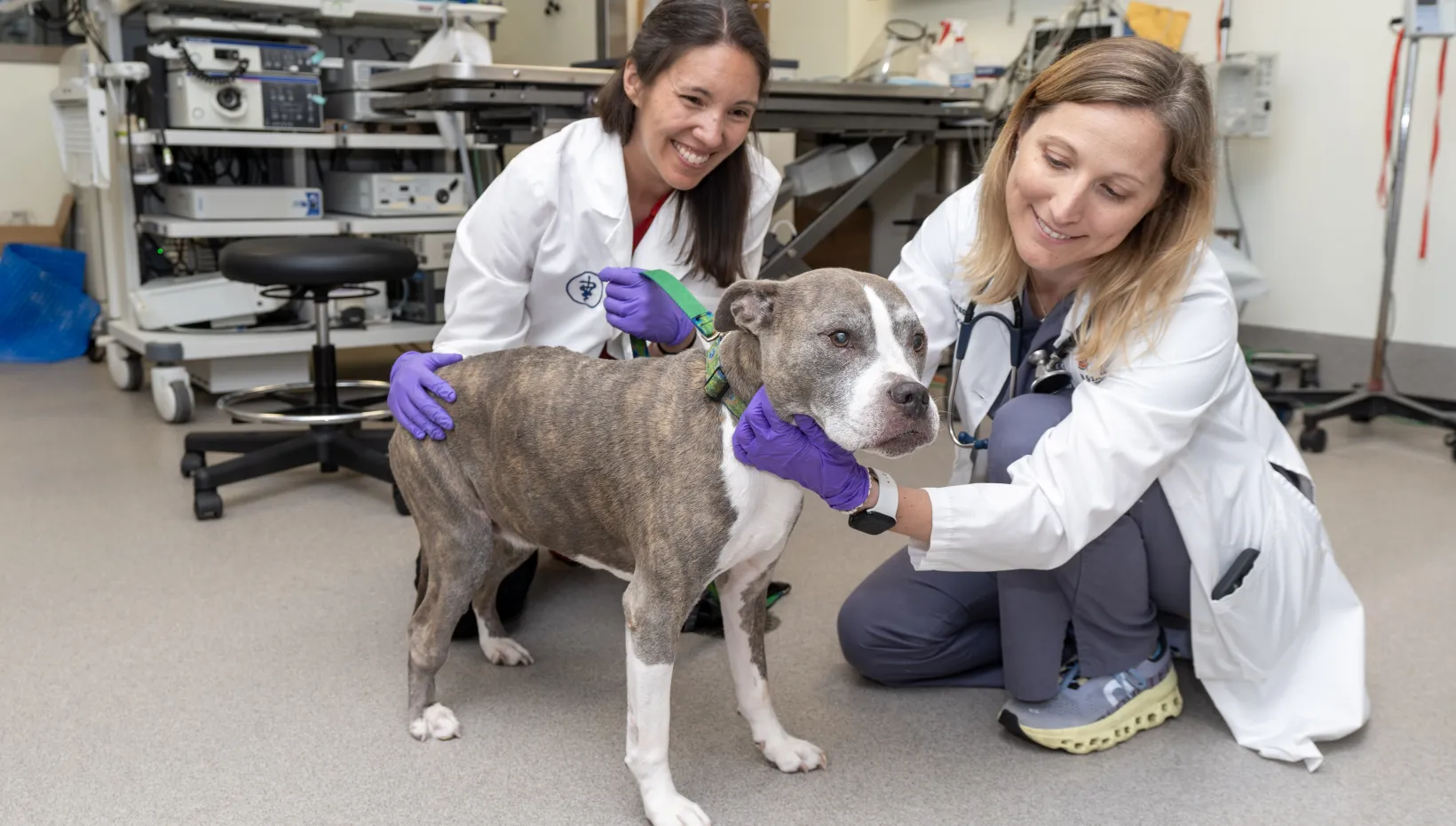Microbes and their superpower

Article by: Lisa Lopez-Snyder
Originally Published
Ohio State University College of Veterinary Medicine clinical scientists Jenessa Winston, DVM, PhD, DACVIM and Vanessa Hale, DVM, PhD, want us to know that microbes have a superpower.
Traditionally viewed as disease-causing agents that require treatment or prevention, microbes — such as bacteria, fungi, viruses, and their genes — in fact, have the ability to protect and improve health, says Winston, assistant professor of Small Animal Internal Medicine in the Department of Veterinary Clinical Sciences at The Ohio State University College of Veterinary Medicine.
“The microbiome, the collection of all microbes, might be microscopic, but as organisms that naturally live on and inside our bodies, they contribute in important ways to promote animal health and well-being,” she says.
Winston and Hale’s research contributes substantially to the growing body of evidence around this work. The team is currently engaged in several ongoing research projects.
Bladder cancer research
An associate professor in the Department of Veterinary Preventive Medicine at Ohio State’s College of Veterinary Medicine, Hale is studying the microbes in canine urine and stool to understand how they contribute to the development of bladder cancer, how oral probiotics can impact these microbiomes and whether probiotics paired with standard chemotherapy can improve clinical outcomes in dogs.
Hale, who is also acting director of Ohio State’s Center of Microbiome Science, a global leader in the emerging field of microbiome science, is heading a multicenter clinical trial on this effort with veterinary oncology and internal medical teams at Ohio State, North Carolina State University and the University of Georgia.
“We are hopeful that this research, which manipulates the urine and stool microbiome, will show promise to improve cancer outcomes,” she says.
“Recent research has demonstrated the importance of the microbiome in cancer therapy, and this research can help us understand how microbes may be influencing tumor response to cancer treatments in dogs and also in humans.”

Microbial directed therapies
As director of Ohio State’s Companion Animal Fecal Bank, Winston is leading clinical trials involving the use of fecal microbiota transplantation (FMT) in cats and dogs as a therapeutic modality.
The first FMT study involves transferring stool from healthy dogs into the gastrointestinal tract of dogs with canine parvovirus to restore their healthy bacteria. The second FMT study, the SLIM study, evaluates FMT’s ability to enhance weight loss in obese cats and dogs. Winston notes that this second study aligns with human research, which has found that obese people have gut microbes that release much more energy than lean people, causing an increase in metabolic disorders and weight gain.
The evidence for FMT’s success in obese cats and dogs is already being documented, says Winston. The results will help shed light on the role(s) gut microbes play during treatment and recovery from obesity and help advance understanding around the development of microbiome-targeted therapies, she says.
Winston also chairs the Companion Animal Fecal Microbiota Transplant Consortium, a network of other veterinary researchers from 18 institutions worldwide.
This summer, the consortium issued clinical guidelines for veterinary general practitioners to help them screen fecal donors, prepare fecal products for transplantation, and identify patients who might benefit from fecal transplants.
“We are just beginning to tap into the clinical potential of the microbiome to aid us in preventing, diagnosing, and treating disease,” Winston says. “We look forward to making many future advances in this space at Ohio State University College of Veterinary Medicine and with our partners around the globe.”
Hale and Winston’s innovative and impactful research, which leverages the veterinary health system to advance basic, clinical and translational research, propels our ambition to Be The Model® comprehensive College of Veterinary Medicine in the world.